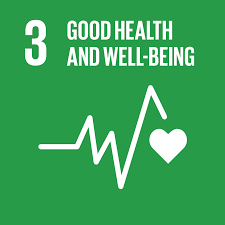Protesting in the Context of COVID
- Mahek

- Jun 30, 2020
- 4 min read
This article is focused on these Sustainable Development Goals:

protest
noun
/ˈprəʊtɛst/
a statement or action expressing disapproval of or objection to something
Over the past few weeks over 100,000 people have taken to the streets in response to the police brutality and overall institutionalised racism African-Americans and people of colour have been facing for centuries. This is a battle that indefinitely needs to be fought, nonetheless, the pandemic is still raging, thus one must take precautions, if not to protect oneself, there are still others out there who are at risk to the effects of COVID-19.
Hence, it is of the utmost importance to prepare in advance, and according to the New York City Health Department, there are various courses of action to be taken. First and foremost, wear a face mask at all times, and carry an extra if need be. Other items to have on hand include hand sanitiser, a bottle of water, and eye protection of some sort. At the protests, they state that rallying in a small group is best, as well as not to yell or sing if possible as the respiratory droplets transmit and produce more bacteria, leaving you at a greater risk of being infected. Instead, carry noisemakers or use signs. Additionally, aftercare should not be overlooked. Be sure to wash your hands thoroughly, monitor your temperature, and check-in with those who accompanied you.
While precautions are to be taken, it should still be noted that a month after the BLM protests began, an all-time high of COVID-19 cases was recorded on Thursday, June 25th. However, though many theorise it to be so, the protests are not a major source of this spread. The true causes of the spread are within an indoor space, as the bacteria spread through touch. This incites a further need to stay safe at protests as there are numerous complications, as many speculate that though caveats have shown that the virus is not being distributed amongst protesters, tear gas (which there has been heavy use of) leaves them more susceptible to all infections.
Essentially, police tactics are worsening the spread of COVID-19- most effectively through tear gas. Once in the air, there are various means through which the gas can affect you: for instance, teary eyes or a runny nose. Either way, you would wipe whichever region of your face with your hands, which are contaminated with all sorts of bacteria. Furthermore, the gas also causes irritation to your lower airways, should you be in contact with any such bacteria at that point in time you are at much higher risk regardless of your age; there has been a multitude of deaths due to these such police tactics. It has also been stated that should you be arrested and crammed into a jail cell there’s no further opportunity to keep distance between yourself and those around you, thus Dr. Georges Benjamin, the executive director of the American Public Health Association, states that “all bets are off” at that point in time.

So what can you do? Sign petitions. A petition is a formal request generally made by the populus towards a government official/ public official. Some may feel as though petitions don’t have any true value, however, they are an incredibly important tool when effectively utilised. Beginning in the 18th century, petitions were open to all, even those who couldn’t vote, meaning those who were oppressed suddenly had a mode in which to use their voice. Similarly, today they should be used in the same manner. It’s never been easier to sign a petition- all it takes is the click of a button. However, it is due to this that some refer to petitions as a form of slacktivism (actions performed via the internet in support of a social or political movement, but regarded as requiring minimum time or effort). Nonetheless, petitions, though not resulting in an immediate change, alert the decision-maker(s) of the public opinion, incentivise the media to spend more time covering an issue, and overall incite conversations. They are an important first step in any movement because, at the end of the day, they raise awareness.
Any action, no matter how small, makes a difference. A petition is a collection of all our voices, and whilst a protest makes this more visible to the eye, in the end, they have the same effect. So, should you, for any reason, not be able to attend a protest, this movement matters, so stay at home, stay safe, and be an advocate from the confines of your own walls. The pandemic isn’t going anywhere yet, so stay safe and make your voice count- they all add up. In other words, do your part- whatever that may be- because at the end of the day, change starts with you.
Bibliography
1. Ghose, Tia. “You Attended a Protest during a Pandemic. Now What?” LiveScience, Purch, 3 June 2020, www.livescience.com/george-floyd-protests-coronavirus-safety.html.
2. Lopez, German. “The Effect of Black Lives Matter Protests on Coronavirus Cases, Explained.” Vox, Vox, 26 June 2020, www.vox.com/2020/6/26/21300636/coronavirus-pandemic-black-lives-matter-protests.
3. “First Amendment”. Legal Information Institute, Cornell Law School. law.cornell.edu/constitution/first_amendment
4. Ablow, Gail. “sign Here to Save the World: Online Petitions Explained”. Moyers On Democracy, 21 September, 2016. billmoyers.com
5. “Petitioning”. National Museum of American History, Smithsonian. americanhistory.si.edu
6. Middleton, Tiffany. “Right to Petition”. American Bar Association, 14 November, 2019. americanbar.org








Comments